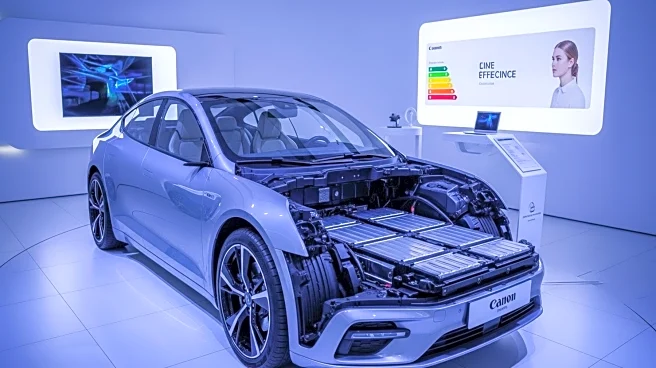What's Happening?
Stellantis, in collaboration with Saft, has introduced a prototype vehicle featuring the Intelligent Battery Integrated System (IBIS), marking a significant advancement in electric vehicle technology. The IBIS technology integrates inverter and charger functionalities directly into the battery, enhancing efficiency and reducing vehicle weight. The prototype, a Peugeot E-3008, is undergoing real-world testing and promises up to 10% energy efficiency improvement and a 15% power gain. This development is part of a French-based research initiative aimed at creating more sustainable and cost-effective energy solutions.
Why It's Important?
The introduction of IBIS technology by Stellantis could significantly impact the electric vehicle industry by offering a more efficient and cost-effective powertrain solution. This innovation not only improves vehicle performance but also reduces manufacturing costs, potentially making electric vehicles more accessible to consumers. The technology's ability to simplify maintenance and facilitate battery reuse aligns with broader sustainability goals, offering long-term benefits for both the automotive industry and environmental conservation efforts.
What's Next?
The next phase of the IBIS project, supported by the French Government, involves extensive real-world testing to validate the technology under typical driving conditions. Successful integration of IBIS into production vehicles could occur by the end of the decade, potentially revolutionizing electric vehicle design. Beyond automotive applications, the technology holds promise for sectors such as aerospace and data centers, indicating a wide-ranging impact on sustainable energy solutions.










